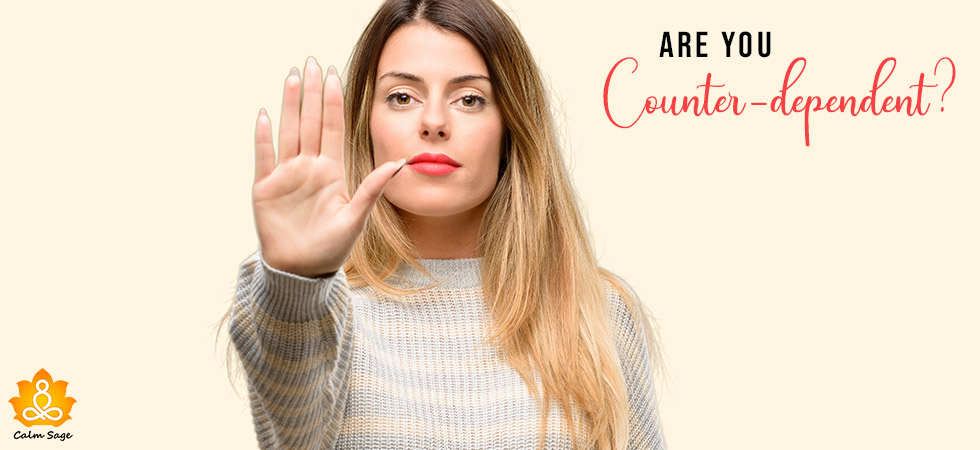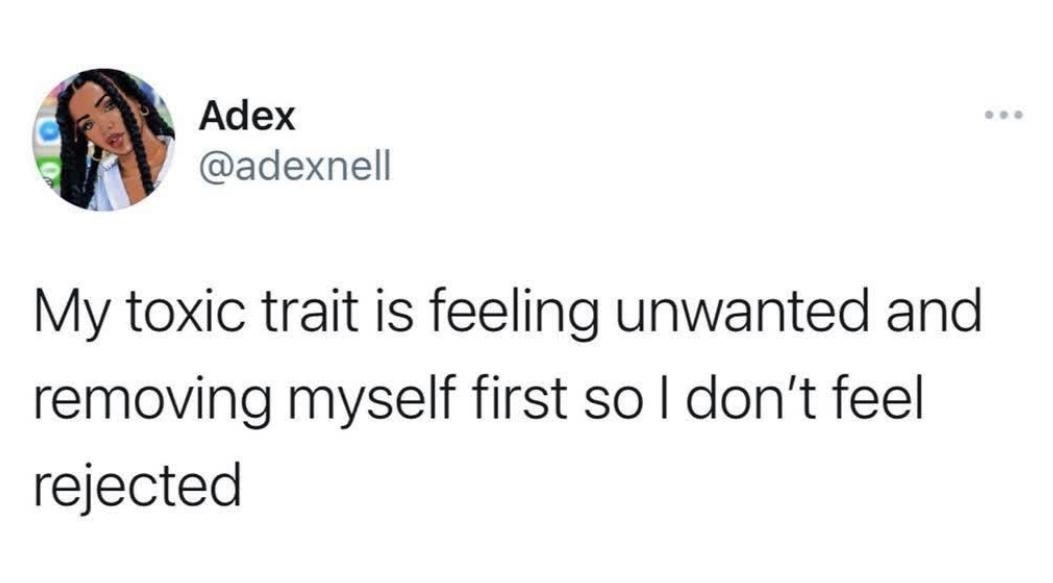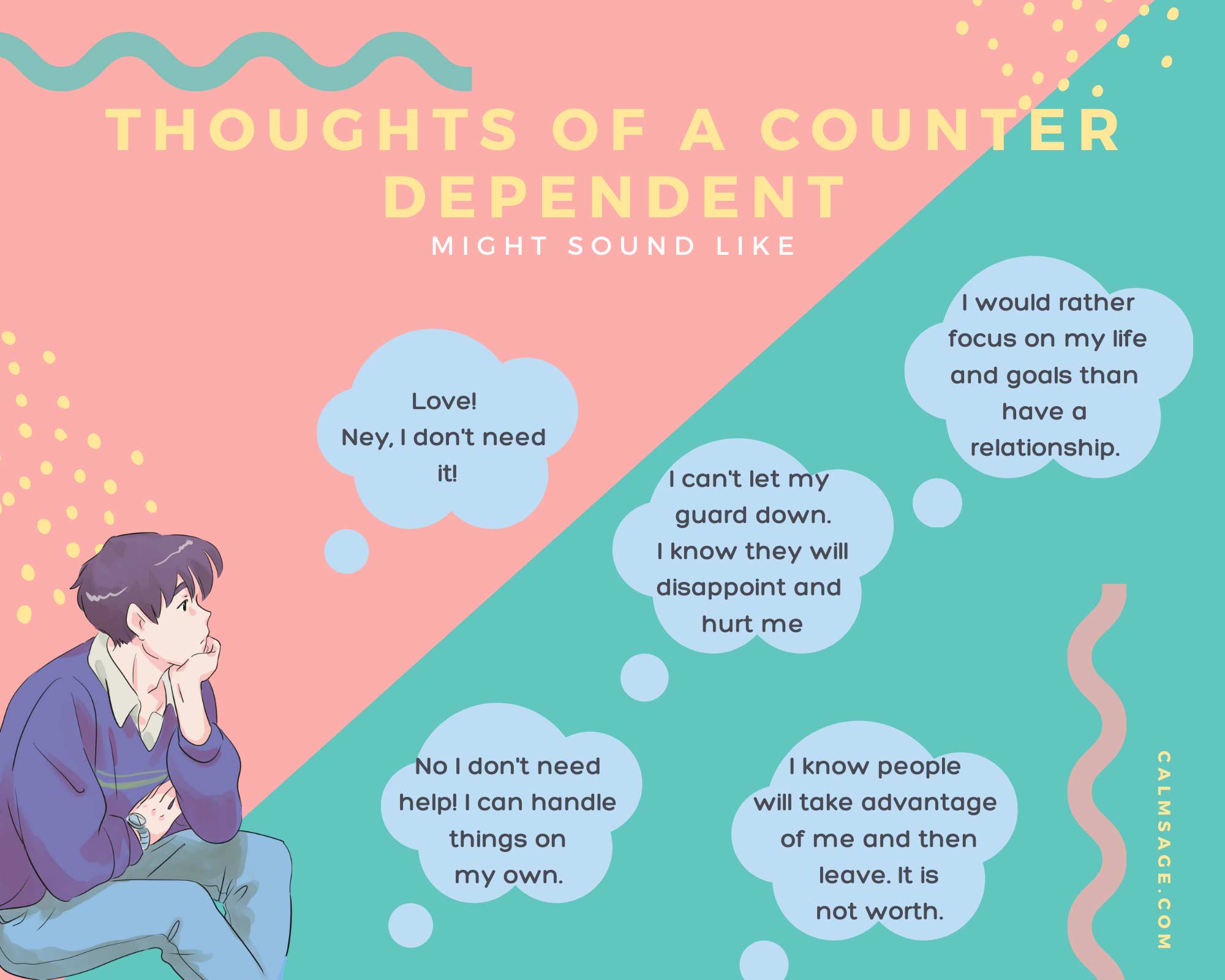8 Signs That You Are a Counter-Dependent Person In A Relationship

When talking about dependency in a relationship we often come across the word codependent relationship where the person leans on the other person. But not all relationships might show codependency, some might reflect counter dependency.
You can think of it as the other extreme end of the dependency pole where an individual is distant from others in a relationship. Here is a quick test for you to see whether you are a counter-dependent person or not!
I came across this post on Instagram:

On a scale of 1-10, how well can you relate to it? The closer you are to 10 (very much) the higher the chances of you being a counter-dependent person in a relationship. While this post might have given you a vague idea of what counter dependency is all about, let us understand it in detail and check the signs associated with it.
Understanding the Concept of Counter Dependency
Experts from the field define counter dependency as a “flight from intimacy.” In simpler terms, counter dependency refers to the fear of depending on other people. It is a defensive behavior wherein an individual finds it difficult to form close bonds that have the element of connection and trust in them. They will avoid seeking help from others or opening up to them so that they don’t appear needy or get hurt by them later. Counter dependency is problematic as it does more harm than good.
Generally, counter-dependent people are seen by others as egoistic who fear showing their vulnerability to others.
I define counter dependence as depriving oneself of close relationships to avoid being hurt by others. However, internally the person might be craving nurturing bonds but due to past experiences, they avoid taking risks altogether.
A .1 Experts Definition of Counter-Dependency
“One who has let another person’s behavior affect him or her, and who is obsessed with controlling that person’s behavior.” ~Melody Beattie
(From the book Codependent No More: How to Stop Controlling Others and Start Caring for Yourself)
“People with counter-dependent behaviors appear strong, secure, and successful on the outside, while on the inside they feel weak, fearful, insecure, and needy. They function well in the world of business but often struggle in intimate relationships.” ~Janae B. Weinhold and Barry K. Weinhold
(From the book The Flight from Intimacy: Healing Your Relationship of Counter-dependency – the other side of Codependency)
A.2 What could possibly result in counter dependency?
The root cause of counter-dependency is more likely to lie in the childhood experiences of an individual. Some mental health professionals even suggest for it to be rooted in an individual between the age of 6 months to 3 years.
Reason 1: A child who has been raised with an avoidant attachment style where there is misattunement between the child and parent, is more likely to develop counter-dependent traits in future relationships.
Reason 2: The child might have been grown in a setting wherein the parents are too occupied with themselves or self-centered to focus on the child’s needs. Perhaps, as little kids, they might just end up focusing on meeting their own needs, which continues with them as they grow.
Reason 3: Being ignored by parents as a child can also sow the seed of counter dependency in an individual as he grows.
Irrespective of the fact that which out of the three is the cause behind an individual’s counter-dependent behavior, it will result in fearing intimate relationships. Thus, a person with counter dependency might just end up avoiding deep relationships and opening up with others to avoid the overwhelming feelings of being abandoned or rejected.
A.3 What Counter-dependency is NOT!
Please do not confuse counter dependency with healthy autonomy or healthy boundaries.
A self-reliant individual will look for ways to recognize his full potential as an individual. However, instead of cutting his ties with others in this process, they will be securely connected with others. Unlike counter dependency where there is fear of intimacy and trust governing the person. People with healthy boundaries will share intimate and trusting relations with others. Plus, a sign of a counter-dependent person is being resistant towards asking for help, whereas a self-reliant individual finds it comfortable relying on others and asking for help.
To put it in a nutshell, a counter-dependent person will be driven by an “avoidance mindset” and in the case of a healthy autonomous individual the “approach mindset” will be the driving force.
8 Signs Of A Counter Dependent Person
An individual with counter dependency behavior might show the following signs:
- You find it difficult to form a close bond with others.
- You have this strong need to be right all the time.
- You are resistant to seek help from others (even when you badly need it).
- You have difficulty relaxing and focusing on yourself due to long working hours (as you won’t be taking help from others).
- You experience this constant fear of appearing weak and vulnerable to others.
- You are easily overwhelmed by coming out as vulnerable to others.
- You find it difficult to regulate your emotions and hence it becomes tricky to identify and acknowledge your feelings.
- You expect perfection not only from yourself but also from others.
Apart from the signs of counter dependency discussed above it may also look like:
- Persistent feelings of loneliness.
- Fear of rejection.
- Pushing other people away without any warning or closure.
- Feeling trapped in a relationship.
- Tend to form sexual relationships without looking for deeper and emotional connections.
- Feeling anxious and fearful, if relationships start to get deep and meaningful.
- Fear of commitment.
- Complaining about relationships.
Special Content: Inside the Mind of a Counter Dependent
As a psychologist, I must say that your thoughts have the power to impact your feelings, behavior, and perception of the world. That is why it is crucial to be mindful of your thoughts to create awareness, practice acceptance, and further bring necessary life changes.
So let us see what a counter-dependent person’s thoughts might be like and check with ourselves if we are having some of them coloring our thinking pattern.

Recognizing your counter-dependent behaviors is the first step towards healing your fear and enabling yourself to connect with your loved ones. Kudos! On taking the first step. If you can relate to most of the signs of counter dependency as discussed above, don’t worry there are doable ways to deal with it.
However, if you know someone who might be showing these signs in their close relationships, share this blog with them and help them take the first step towards healing. Plus, they might not ask for help upfront but they might need it!
To find out ways to deal with counter-dependent tendencies keep reading at calmsage.com We will be coming up with the resolution soon. Till then stay safe, stay happy!
Thanks for reading!
Love & Light




















